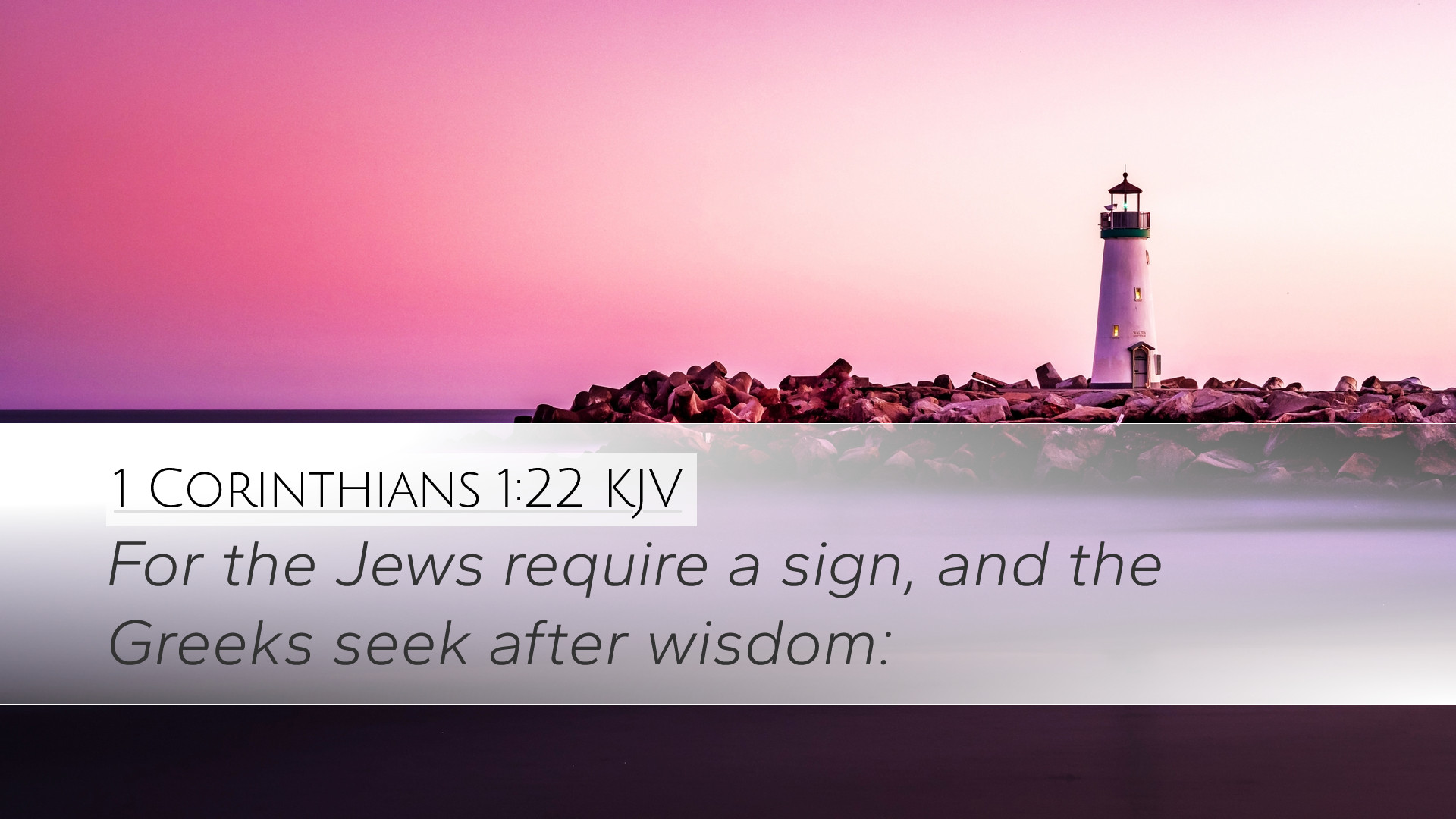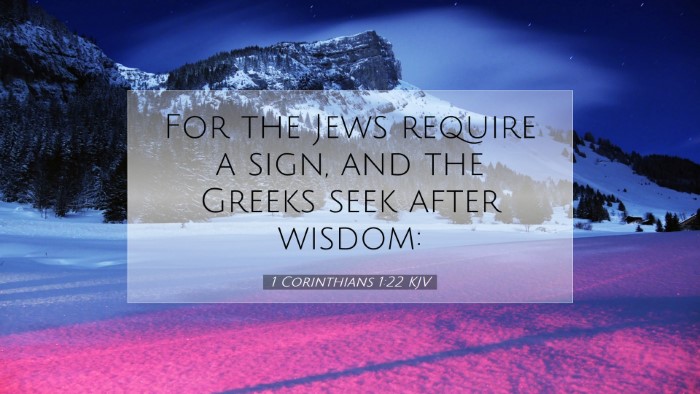Commentary on 1 Corinthians 1:22
In 1 Corinthians 1:22, the Apostle Paul succinctly articulates a fundamental truth about the nature of the Gospel and the differing responses it elicits from various groups. The verse states: "For Jews require a sign, and Greeks seek after wisdom." This statement is layered with profound implications, reflecting the cultural and religious dynamics of the first-century world.
Contextual Background
To fully grasp the significance of this verse, it is crucial to consider the context in which Paul was writing. The Corinthian church was situated in a cosmopolitan city renowned for its diverse philosophies and beliefs. Amidst this intellectual environment, the early Christians faced challenges from both Jewish and Gentile communities.
The Jewish Demand for Signs
Matthew Henry notes that the Jews, as God's chosen people, had a historical expectation for miraculous signs as confirmation of divine authority and truth. Throughout the Old Testament, signs and wonders were associated with prophets and the Messiah. The Jews demanded a sign to validate Jesus’ claims and his messianic identity. This desire reflects their longing for tangible proof of God's intervention in history.
The Greek Pursuit of Wisdom
In contrast, the Greeks possessed a philosophical mindset that sought wisdom through rational thought and intellectual discourse. Albert Barnes emphasizes that the Greeks valued human reason and philosophical arguments, often dismissing miraculous events as superstitious. They were in search of deep understanding and refined discourse, favoring eloquence over divine intervention. This leads to a clash between the spiritual and the intellectual, as the message of the cross appears foolish to those steeped in human wisdom.
Theological Implications
This verse serves as a profound commentary on the nature of faith and human expectation. Paul highlights that the Gospel cannot be reduced to mere signs or intellectual debates; instead, it transcends these categories. The power of God is evident in the message of the cross, which is ultimately both a stumbling block and foolishness to the respective audiences of Jews and Greeks.
Foolishness of God
Adam Clarke interprets Paul's assertion as a reminder that God's wisdom often contradicts human wisdom. The Gospel’s core message—Christ crucified—defies the expectations of both groups. Whereas the Jews look for dramatic displays of divine power, and the Greeks seek compelling arguments, God has chosen what is deemed foolish to confound the wise. This theological insight emphasizes the inverted values of the Kingdom of God.
Application for Modern Believers
The truths articulated in 1 Corinthians 1:22 continue to resonate in contemporary Christian discourse. As modern believers, we face similar challenges in a world that often prioritizes spectacular signs or sophisticated arguments over reliance on the simple yet profound truth of the Gospel. Here are key applications drawn from this verse:
- Faith Beyond Signs: Believers are called to trust God’s promises without demanding proof or miraculous signs. Faith is rooted in the assurance of things hoped for (Hebrews 11:1).
- Embracing Foolishness: Embracing the so-called "foolishness" of the cross can be a source of strength. The message of salvation through Christ has the power to transform lives, regardless of cultural or intellectual status.
- Engaging with Culture: Understanding the differing perspectives of our counterparts—whether they be secular thinkers or those seeking traditional beliefs—is essential for effective evangelism. We must articulate the Gospel compellingly against the backdrop of prevailing cultural narratives.
Conclusion
In summary, 1 Corinthians 1:22 encapsulates the dichotomy between expectation and divine revelation. As pastoral leaders, students, theologians, and scholars, we are reminded that God’s ways are not our ways, and the Gospel stands counter to both Jewish and Greek understandings of wisdom and power. Let us approach the Word with humility, allowing its truth to guide our understanding and response to a world still in pursuit of signs and wisdom.


